Bible on the Back Porch
Reading, pondering and studying God’s Word is sometimes best done “on the back porch.” Each week we will try to offer something for you and your “back porch time.”

Current and Upcoming Sunday Readings
2nd Sunday of Easter
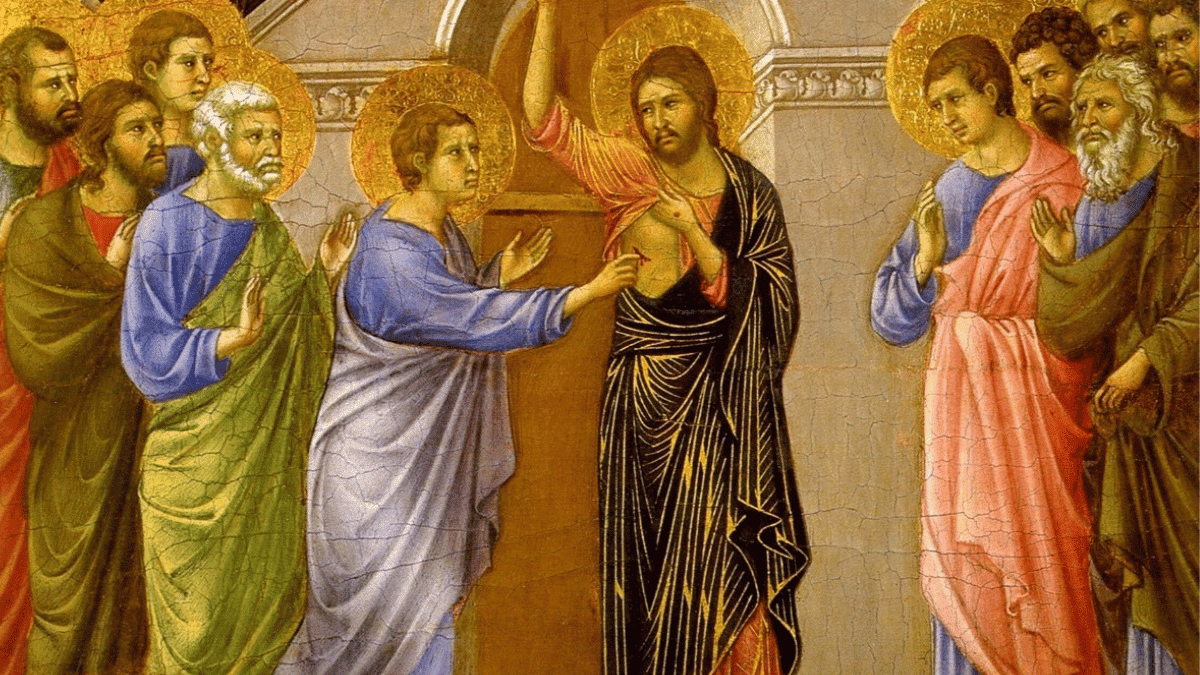
The Upper Room
It is the evening of Easter Sunday. There are more reports of the Risen Jesus and yet the Apostles and other disciples are still behind locked doors of the Upper Room. They are afraid. Jesus appears to them and his first words are: “Peace be with you.” Jesus breathes the Holy Spirit upon them – what might that mean? He commissions them – just as the Father sent Jesus! And there’s more, a lot more. But not all were there and demanded to see for themselves.
There is a lot to unpack in these verses, so grab your favorite beverage and take some time on the back porch.
Full Text of the Gospel
Detailed Commentary on the Gospel
Maesta altar piece, Duccio di Buoninsegna, 1308, Museo dell’Opera Metropolitana del Duomo, Siena | Public Domain
3rd Sunday of Easter
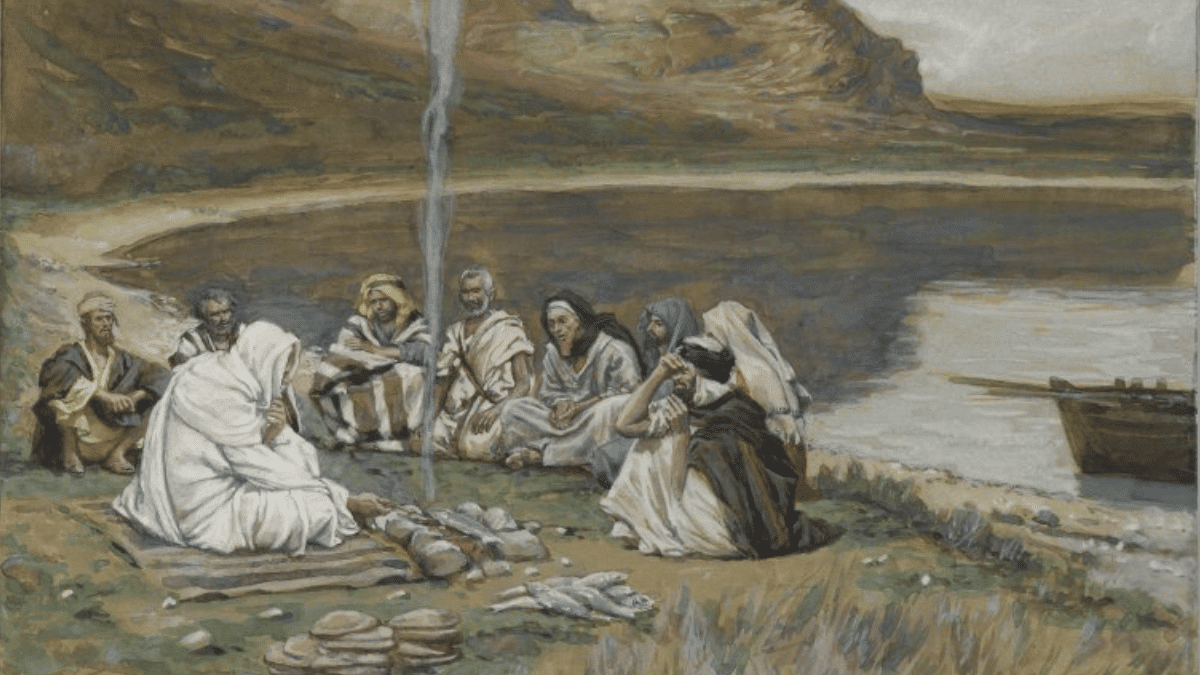
Along the shore
Sometime after Easter but before the Ascension, the apostles seem at a loss to know what to do next – so they go fishing. There on the shore of the Sea of Galilee (Triberius) they are reminded that they are still in the fishing business, but instead of fish, they will be catching men. However, one among them needs to be reconciled: Peter
There is a lot to unpack in these verses, so grab your favorite beverage and take some time on the back porch.
Full Text of the Gospel
Detailed Commentary on the Gospel
The Meal – Jesus and his Apostles | James Tissot, ca.1890 | Brooklyn Museum | PD-US
4th Sunday of Easter
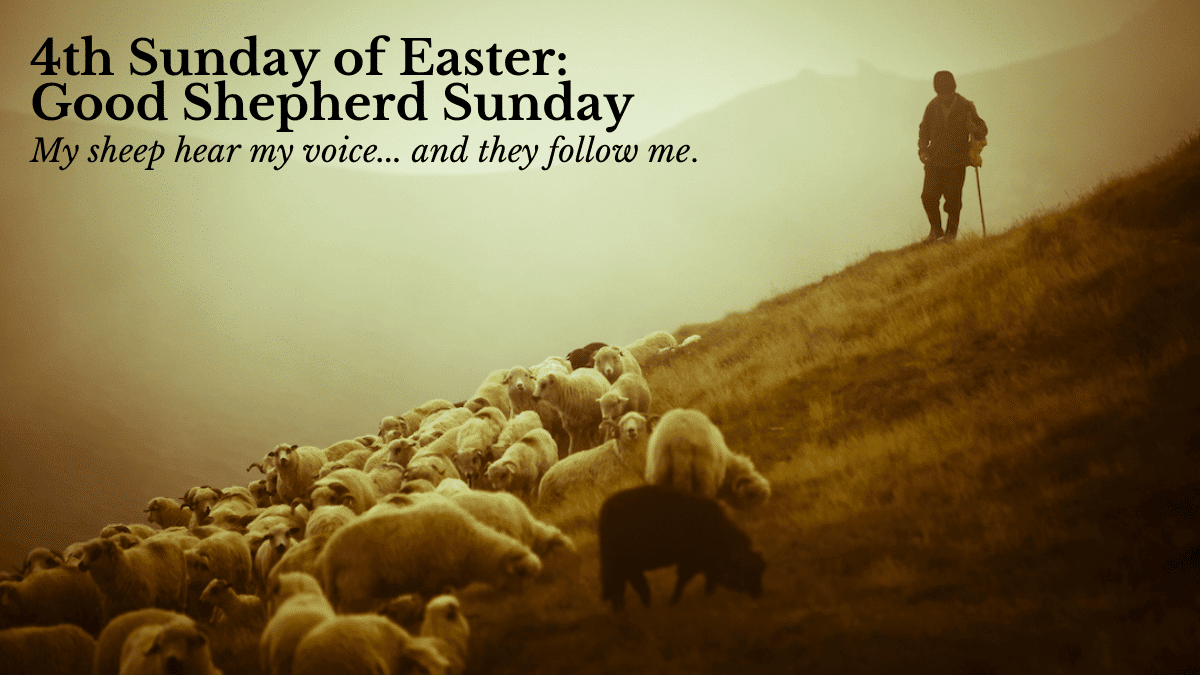
...and they follow me
The 4th Sunday of Easter is known as “Good Shepherd Sunday.” No matter what liturgical year, the gospel is always taken from John 10 and explores some aspect of the relationship between the Shepherd and the sheep. The whole of John 10 takes place during the Feast of Dedication and has clear and strong connections to Ezekiel 34 where God Himself promises to come and shepherd the sheep. And what is to be the response of the sheep?
There is a lot to unpack in these verses, so grab your favorite beverage and take some time on the back porch.
Full Text of the Gospel
Detailed Commentary on the Gospel
Christ’s Final Address to the Apostles | Bona Duccio di Buoninsegna, 1380 | from the Maesta Altar | Siena, Museo dell’Opera del Duomo
5th Sunday of Easter
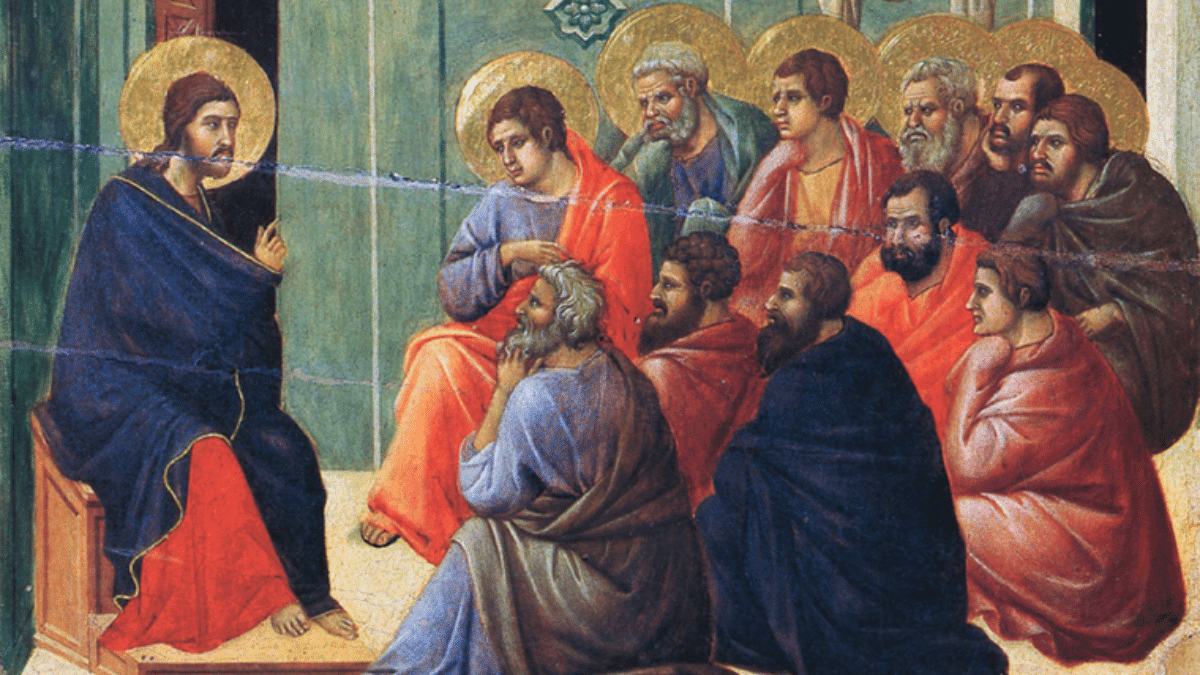
A New Commandment
The 5th Sunday of Easter is part of the “Farewell Discourse” coming after the Last Supper and before his arrest. The discourse runs over several chapters. At the wedding of Cana, Jesus told his mother that his time had not yet come. Now, Jesus tells his disciples, the time has arrived. Now is the time he will be glorified by the Father. Unsaid, but implied, is that now the mission of the Kingdom falls to them. There is one final, overarching command of the Kingdom: love one another.
There is a lot to unpack in these verses, so grab your favorite beverage and take some time on the back porch.
Full Text of the Gospel
Detailed Commentary on the Gospel
Christ’s Final Address to the Apostles | Bona Duccio di Buoninsegna, 1380 | from the Maesta Altar | Siena, Museo dell’Opera del Duomo
6th Sunday of Easter

Love, Peace and Belief
The 6th Sunday of Easter is part of the “Farewell Discourse” coming after the Last Supper and before his arrest. The discourse runs over several chapters. The disciples are beginning to overcome their shock that Jesus is leaving them. They have pummeled Him with questions and now He lays out for them the way forward: hold dear the commandments, especially love, do not fear, for the Advocate will come who will teach and remind them of all the Jesus said and did. By this they will know peace.
There is a lot to unpack in these verses, so grab your favorite beverage and take some time on the back porch.
Full Text of the Gospel
Detailed Commentary on the Gospel
Christ’s Final Address to the Apostles | Bona Duccio di Buoninsegna, 1380 | from the Maesta Altar | Siena, Museo dell’Opera del Duomo
An Introduction to the Farewell Discourse
The Ascension of Jesus
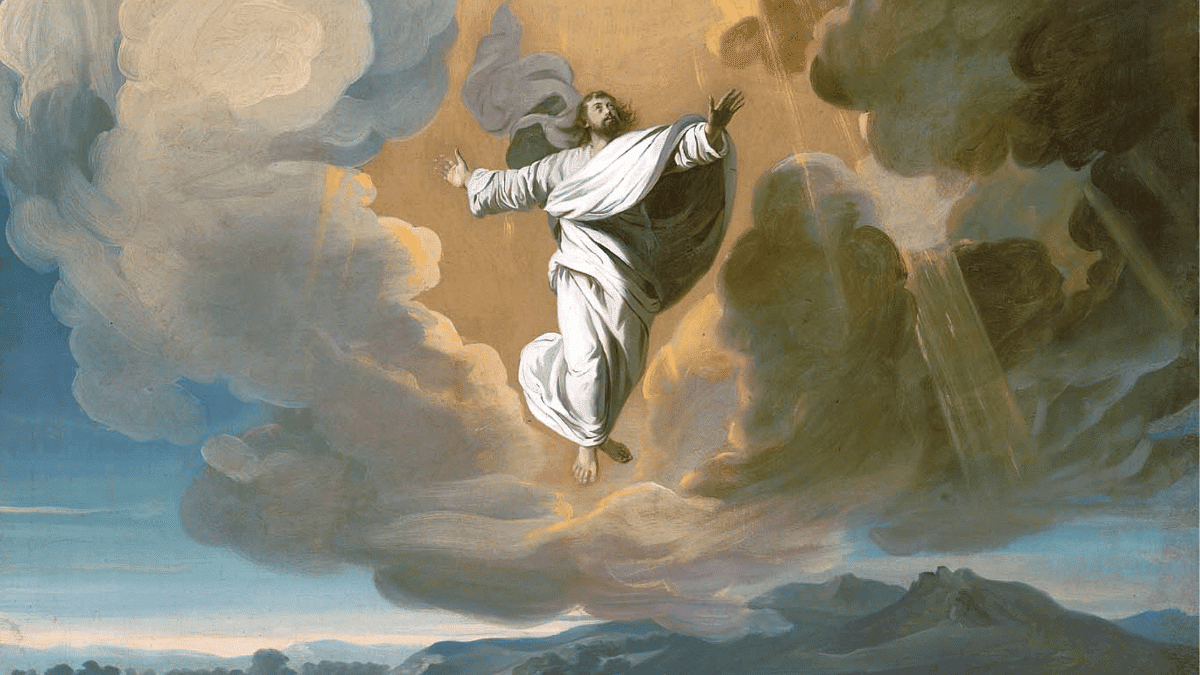
Witnesses to the ends of the Earth
In Liturgical Year C, the celebration of the Ascension offers an interesting combination of readings – each by the same author, St. Luke. The first reading for Sunday is taken from the first chapter of Acts of the Apostles. The gospel reading is taken from Luke 24.
The Lucan gospel account almost mentions the Ascension as “by the way.” The focus and intent of the gospel narrative serves as a commissioning. After several appearances to the disciples on Easter and the days following, now Jesus takes his final leave: You are witnesses of these things. They are to wait in Jerusalem until the coming of the Holy Spirit, but then they will be off to the ends of the earth. The basic elements of the pericope are the same, but in Acts the theme of the Kingdom plays a more prominent part. Here also the commission is specific: you will be my witnesses in Jerusalem, throughout Judea and Samaria, and to the ends of the earth. Their commission is global.
There is a lot to unpack in these verses, so grab your favorite beverage and take some time on the back porch.
Detailed Commentary of the Gospel
Detailed Commentary on Acts
detail of “Ascension of Jesus” | John Singleton Copely, 1775 | Museum of Fine Arts, Boston | PD-US